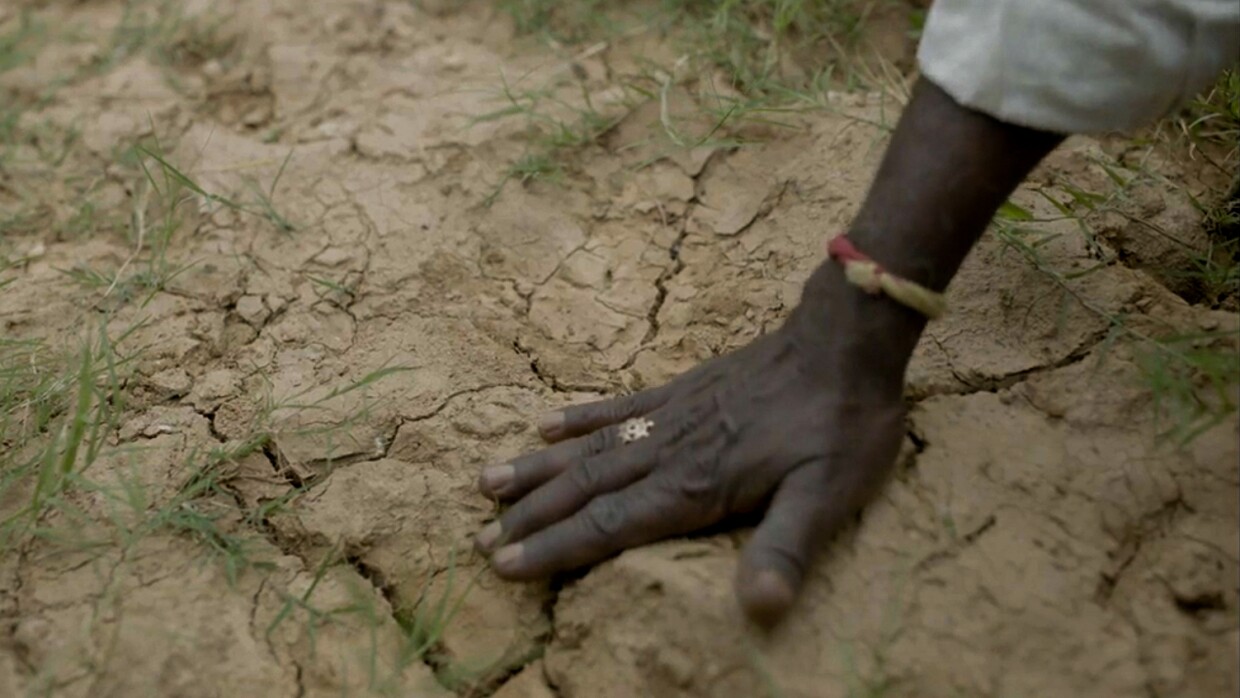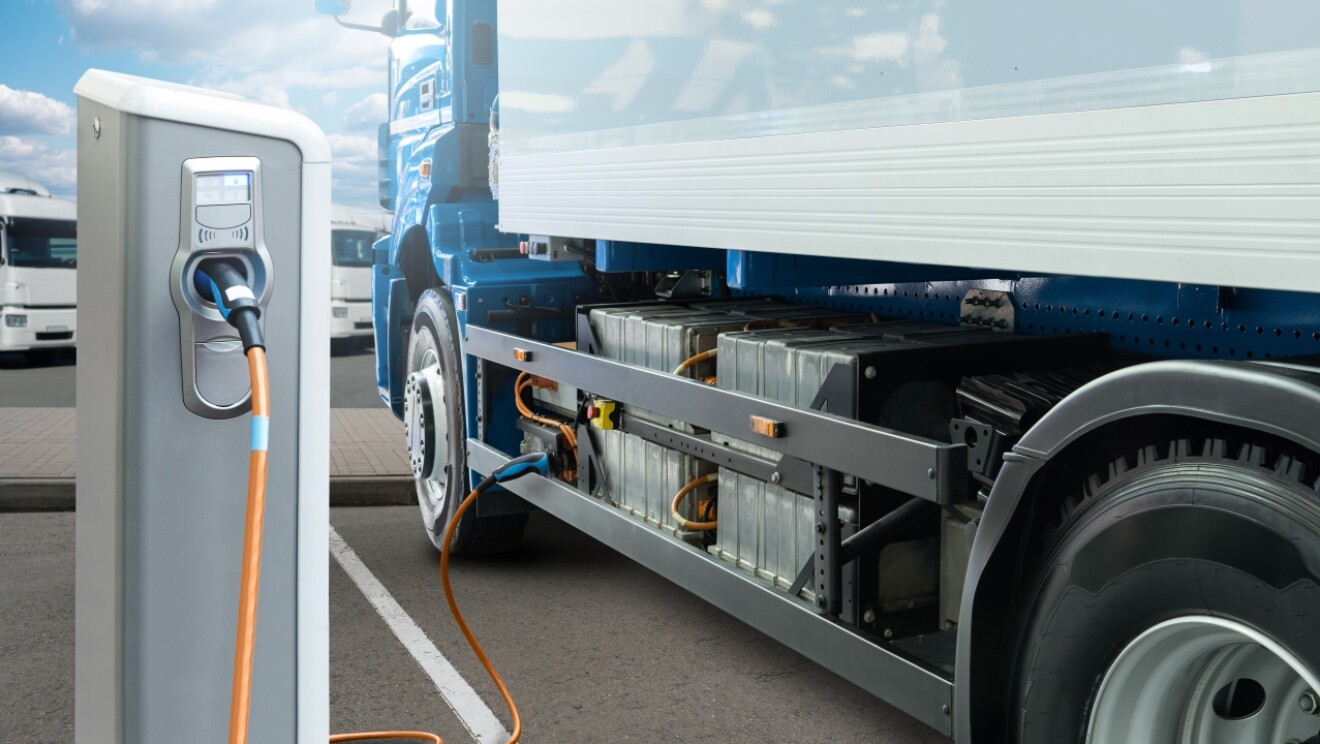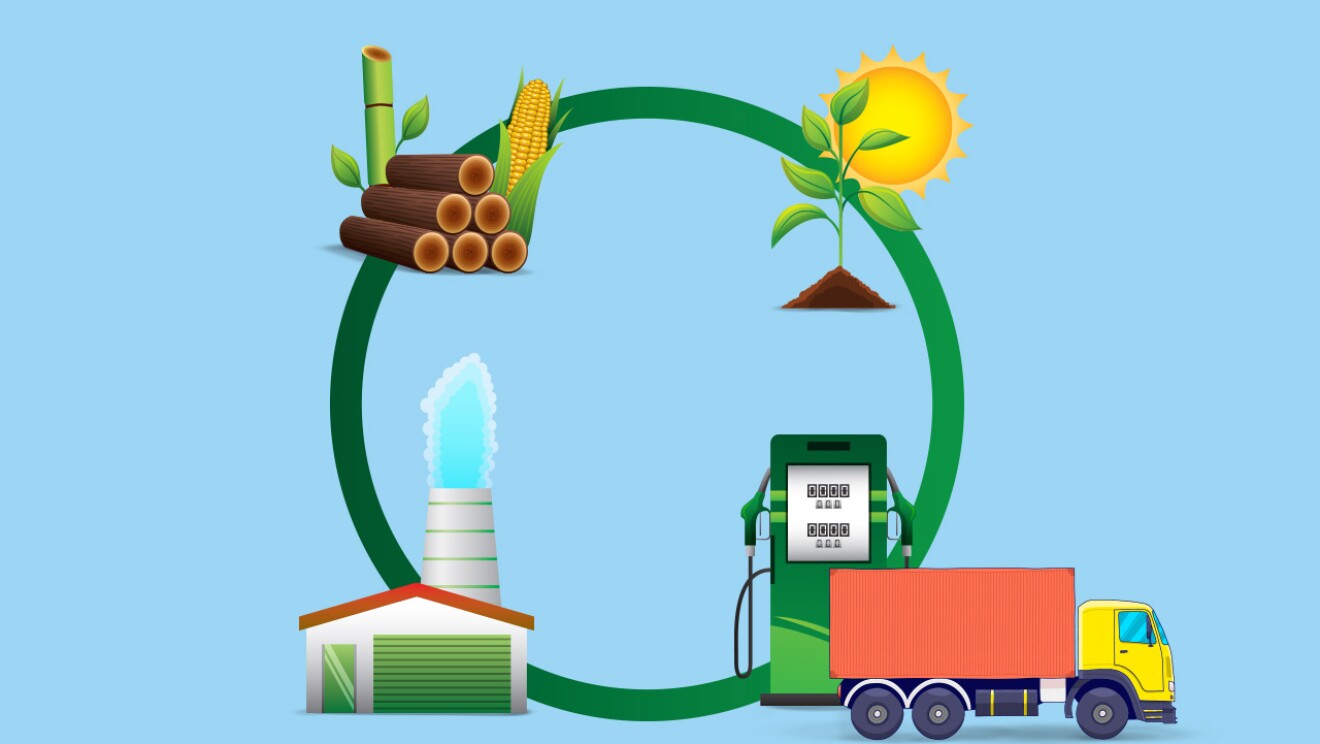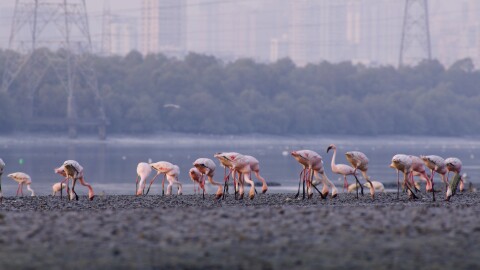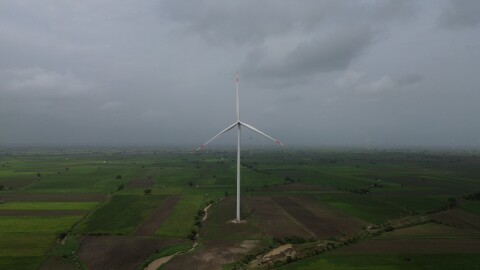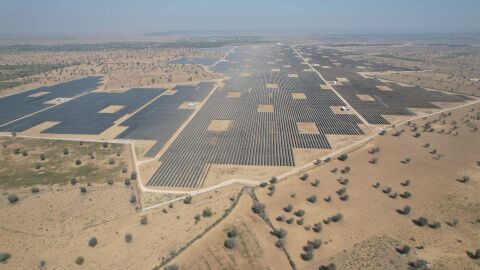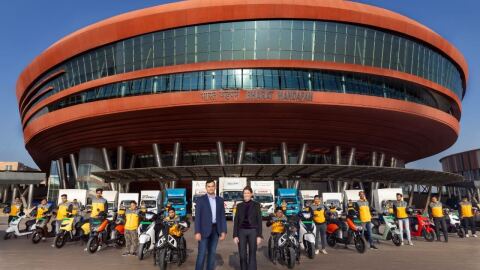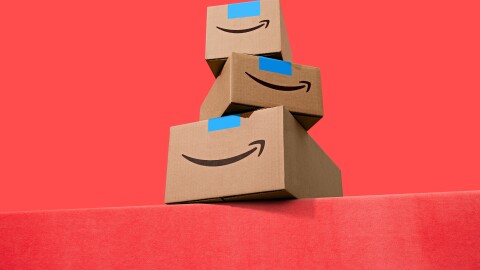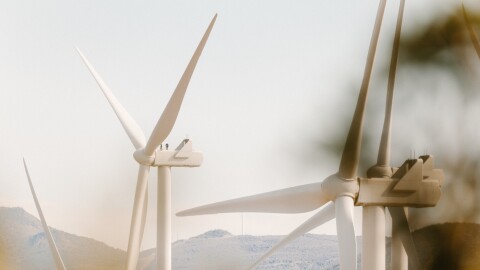In 2024, Amazon announced a goal to return more water to communities in India than it uses in its direct operations by 2027. The new goal builds on Amazon’s work over the last several years to improve water efficiency at its sites in India, and on investments in projects that return water to critically water-stressed communities. Investments previously made by Amazon in India since 2020 have already enabled long-lasting, climate-resilient water and sanitation solutions to benefit more than 1 million people.
Amazon to support projects in regions with highest water stress
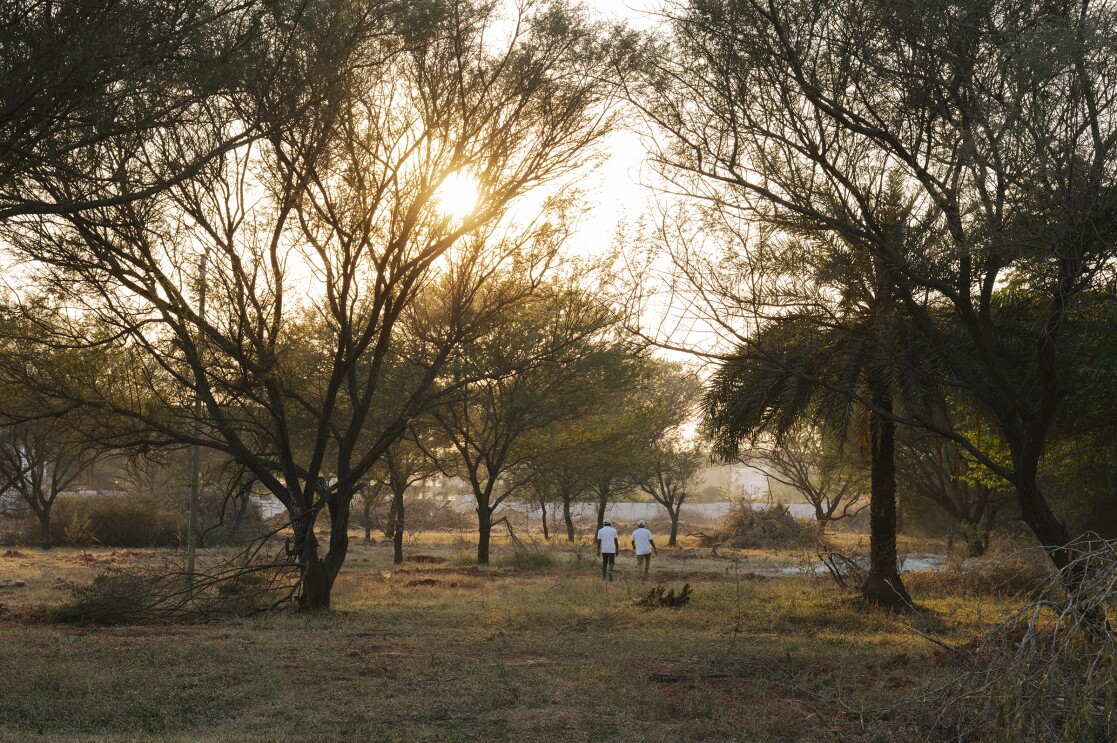
Amazon will continue to improve water efficiency across its operations in India, including at its fulfilment centres, corporate offices, and data centres, and add to its existing set of water replenishment projects by supporting projects in our communities that improve water availability and quality to water-stressed areas.
“Access to safe water is a basic human right and India is one of the most water stressed regions of the world,” says Kara Hurst, Chief Sustainability Officer at Amazon. “Since 2020, we’ve supported more than 1 million people in India with water and sanitation, but given the fast-growing demand for water, setting today’s goal is an important next step to show our commitment to do our part to help solve this rapidly growing challenge.”
Restoration of lakes in Bengaluru and Hyderabad

Water conservation projects will be concentrated in areas of highest water stress and their surrounding local communities. For example, our latest water projects in Yamare Lake near Bengaluru and Sai Reddy Lake near Hyderabad represent a crucial step towards mitigating local water challenges and supporting community resilience. Yamare and Sai Reddy Lakes, once vital water sources for their communities, have been gradually vanishing due to sediment build-up and vegetation overgrowth resulting from urbanisation and erosion. Diminished water storage capacity of the lakes has also led to increased flooding risks and reduced groundwater recharge, further straining local water resources.
In response to these challenges, Amazon is collaborating with SayTrees, a local environmental organisation, to undertake a comprehensive restoration of Yamare and Sai Reddy Lakes. The projects, undergoing since January 2025, involve desilting the lakes, restoring bund formations, and repairing inlet and outlet structures. These efforts, once finished, are expected to replenish annually more than 270 million litres of water to Yamare Lake, and close to 300 million litres of water to Sai Reddy Lake, tripling its size.

“These lake restoration projects serve as a great model for how businesses can positively impact both environmental sustainability and community well-being,” said Deokant Payasi, Trustee with SayTrees. “They not only contribute to water security but also enhance community access to green space, highlighting the multifaceted benefits of ecosystem restoration.”
Amazon’s three-pronged approach to water replenishment
Amazon's water replenishment program focuses on three main types of projects: watershed restoration to improve water quantity and quality; initiatives to provide clean water access; and initiatives to improve community water efficiency. These projects are tailored to address specific local water challenges, aiming to be quantifiable, real, and socially beneficial. They range from groundwater recharge and wetland construction to reducing water system leakage and enhancing irrigation efficiency.
Tackling climate change and future scarcity in water-stressed India
While India is home to 18% of the world’s population, the country has only 4% of the world’s water resources. Climate change is expected to worsen the pressure on water resources, according to the United Nations, with the rate and intensity of floods and droughts in the county on the rise.
“Current estimates suggest that, by 2030, the demand for water in India will be double the available supply,” said Abhinav Singh, Vice President, Operations, Amazon India. “Amazon is scaling water stewardship best practices across our business, which means using less water in all our buildings—from logistics sites to corporate offices and data centres—through more efficient fixtures, rainwater harvesting, waste water recycling, and AI-driven leak detection through smart water monitoring.”
Amazon also previously helped launch the Water.org Water & Climate Fund, by making a $10 million contribution to directly empower 1 million people in India with access to clean water by 2025, providing three billion litres of water per year to areas facing water scarcity.
To measure progress, Amazon will quantify the total amount of water replenished in India and compare to the total water used in its logistics sites, corporate offices, and data centres. A full overview of how Amazon will meet its goal is available through our methodology which is available here: https://sustainability.aboutamazon.com/water.
Amazon's water positive commitment in India builds on existing sustainability initiatives across the country, including investments in renewable energy from solar and wind farms used to match the electricity consumed by Amazon's operations. The company has close to 50 wind and solar projects across the country, surpassing 1.1 GW of renewable energy capacity.
Amazon’s water conservation efforts: The journey so far in India
Across four projects previously announced by Amazon in India, we have already helped to enable long-lasting, climate-resilient water and sanitation solutions to benefit more than 1 million people. In 2022, Amazon announced our first two water replenishment projects in India with one project with WaterAid in Hyderabad and Andhra Pradesh, supplying an estimated 640 million litres of water each year. In 2023, we announced an additional project to help ensure consistent water supply for farmers in villages surrounding Hyderabad where AWS has operations. The project involves rehabilitation of 10 existing water storage ponds and construction of 100 new ponds across 12 villages, delivering 86 million litres of water back to the community each year.
Other sustainability efforts in India
Amazon also announced it has met its goal to have 10,000 electric vehicles in India’s delivery fleet one year early, with initiatives such as Laneshift and Joint Operation Unifying Last-mile Electrification (JOULE) accelerating the development of EV infrastructure and deployment. These efforts support Amazon’s commitment to The Climate Pledge and to achieve net-zero carbon emissions across its operations by 2040, 10 years ahead of the Paris Agreement.
Amazon also continues to reduce its packaging and prioritise recyclable materials while ensuring orders reach customers undamaged. Since 2020, the company removed single-use, thin-film plastic packaging originating from its fulfilment network in India, avoiding 5,300 metric tons of plastics. Nearly half of customer orders across the country are now shipped in their original packaging – with just an address label added by Amazon – or reduced packaging, such as an envelope or a bag. Read more here.
In 2023, Amazon announced a $15 million investment from the Right Now Climate Fund to support nature-based projects in the Asia-Pacific region. Amazon has invested a $1.2 million to restore the mangrove forests and mudflats that are nesting grounds for Mumbai’s iconic flamingo population. Together with Hasten Regeneration, a social enterprise and developer of ecosystem restoration projects, the investment will fund the clean-up along the settlements on the Thane Creek in Mumbai and plant mangroves in the nearby state of Gujarat. In addition to this $1.2 million project, Amazon also supports the Centre for Wildlife Studies to plant 300,000 trees in the Western Ghats and works with ICLEI South Asia to launch a network of 75 school gardens to support urban biodiversity and combat child malnutrition, with the aim of providing 15 million meals for children in India’s municipal schools.
Learn more about Amazon’s sustainability work in India here.
This post was updated in March 2025, to include details on Amazon's work to help restore more than 270 million litres of water to Yamare Lake, and close to 300 million litres of water to Sai Reddy Lake.


